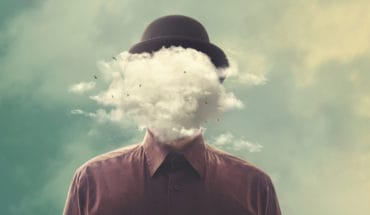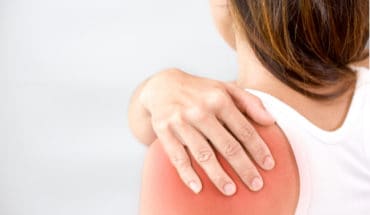Ahead of the music festivals season – and with the end of exams looming – the time is rife to urge parents to make an effort to learn about drugs and the routes to addiction – and avoid dismissive statements along the lines of; “I don’t get it..it just wasn’t like this in my day”. Education and early intervention can still make a real difference and parents who are able to spot the signs of drug addiction early on – and who understand how their child might access drugs – play a pivotal role by stepping in swiftly to help.
“Parents I meet often say they don’t know anything about drugs, but every parent needs to know what’s going on in their child’s world. Talk to them, or at least try. Talk to other parents. The facts about drugs, and their effects, are all over reputable sites on the internet. The earlier a young adult is treated for drug addiction, the better, because the effects on a developing brain can be devastating – including permanent psychosis. And activities such as drug-taking and driving are an especially lethal combination. “Drugs have a more drastic effect on children and teens than on adults because the brain continues to develop until about age 25. The parts of the brain in charge of co-ordination, emotion and motivation develop much more quickly than the parts that control reasoning and impulse.”
A common pathway into illegal drug use
“Some children start at 12, 13 or 14 having alcohol, then smoking cigarettes and weed, and then they start going out with friends and go to clubs and start doing MD (ecstasy). By 17 or 18, in clubs, they start to do cocaine and/or ketamine and usually all together – drink at home, weed, maybe coke and then they get ketamine off a dealer and then have a ‘come down’ and take Benzos (Benzodiazepines are a type of medication commonly known as tranquilizers like Valium and Xanax). This is usually by 18 or 19 – alcohol, marijuana, cocaine, ketamine, and then Benzos. That’s five drugs. Particularly for developing brains, you don’t know what damage that’s doing”
Addictive personalities
“All sorts of personalities take drugs. Not everyone gets addicted, and they say people who are very anxious take downers and those who want excitement may take stimulants. I am not sure that’s the case. There’s a certain kind of personality who can’t get enough, however. I speak to people in their 30s and 40s and they look back and say ‘yes I remember at school I was drinking secretly, and at university I was definitely drinking more, and more secretly, and using more drugs than friends were’ and then that carries on in their adult life.
“How do you put young people off? Does a policeman come round and do a drugs lecture? I am not sure what effect that has. Do you have a strict school ‘no drugs’ policy? Yes absolutely. There is also an educational role for schools but you need the right sort of counsellor talking about the consequences – what happens to your brain physiologically and all the adverse consequences of using drugs; how it affects your physical health, mental health, your academic health, your financial health, your achievements – we look at all these things at the Priory, and it’s important to understand these consequences.
“Drugs are not even expensive; cocaine is a bit expensive but marijuana – it’s everywhere.”
How to find out if your child is using drugs
“The common signs are fatigue, loss of appetite, depression or trouble concentrating. Has your teenager lost interest in studying, sleeping, self-care? Are they sullen, withdrawn, and unusually tired and slack-eyed for the hour of night? Look out for what you think is not normal behaviour.
Are they eating less, losing all interest in a sport they loved? Keep an eye out for deceit or secretiveness. Are their weekend plans starting to sound odd? Are they always being vague about where they’re going?” he said.
In my clinic, I’ve seen a long line of people mentally scarred by drug use. Sometimes the effects can be temporary, but no less scary. One teenager had become so “freaked out” by a recurring image of Edvard Munch’s The Scream (after nibbling on magic mushroom root) that every time he closed his eyes he suffered post-traumatic stress disorder. The boy nearly had to defer his university degree as a result, but the visions eventually stopped. Hauntingly for others, these effects can be “switched on” for good.
“Drug users, even if they might have a bad trip or suffer from short-term psychiatric effects, do not always suffer chronic mental illness from taking drugs. However, addiction – a diagnosed form of mental illness – can often be the precursor to further psychiatric problems.
“I’m seeing an increasing number of patients, often only just 18, who are not only addicted to street drugs but have developed significant depressive and anxiety disorders. Distressing panic attacks from stimulants and hallucinogens – synthetic or mushroom-based – are rising.
“And marijuana is continually being redeveloped to be stronger, and hence more dangerous. So the problem is worsening. Street drug users will almost always know someone in their peer group who has developed a significant mental health problem. This can be a timely warning to them.
“In my opinion, the first step for parents was to try and spot the signs of addiction in a teenager and then to access help. Parents can offer assistance and support only to the degree that they are financially able and that will move their child towards a better life. However, don’t give money that you know will take them further down the road of bad behaviour – instead emphasise you are there to help wherever you can.” Dr Niall Campbell, is consultant psychiatrist at the Priory’s Roehampton Hospital, in south-west London.
- Gut microbiome could delay onset of type 1 diabetes - 3rd April 2025
- The da Vinci 5 Robot Is Set To Transform Bariatric Care: - 31st March 2025
- Beyond money: the hidden drivers fuelling child food insecurity - 31st March 2025






